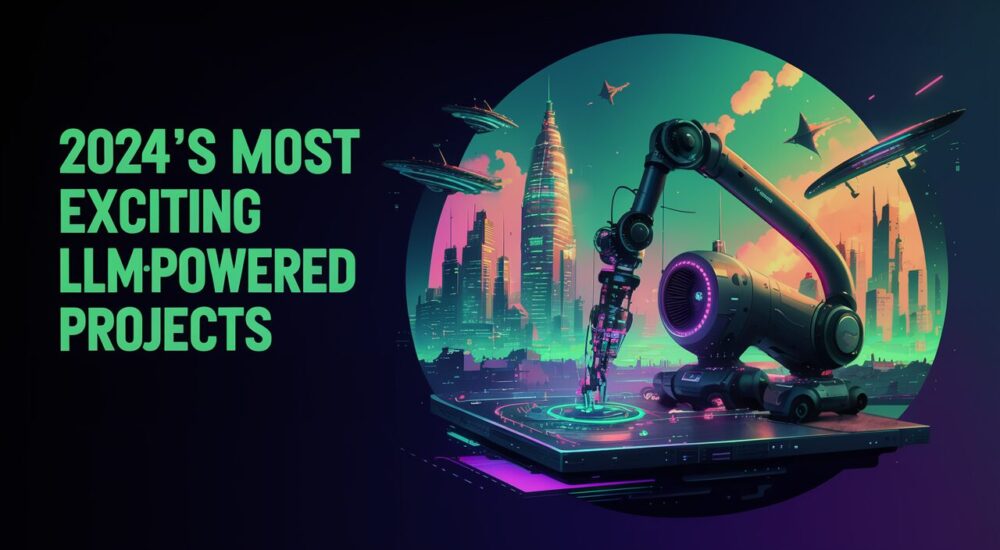2024 Q2 Most Exciting LLM-powered Projects
Following up on the list of 2023’s and Q1 2024’s most exciting projects, here is the list of the most useful, innovative and exciting LLM-powered projects I found in 2024 Q2.
AIOS: LLM-Powered OS 🖥️
The AIOS (Artificial Intelligence Operating System) repository, hosted on GitHub, is a comprehensive platform that integrates various AI technologies. It provides developers with a unified environment for building, deploying, and managing AI applications. From machine learning models to natural language processing tools, AIOS streamlines the development process, making it easier for researchers and engineers to create innovative AI solutions. Whether you’re working on computer vision, speech recognition, or recommendation systems, AIOS offers a robust framework to accelerate your AI projects. Explore the repository here and unlock the potential of artificial intelligence! 🚀🤖
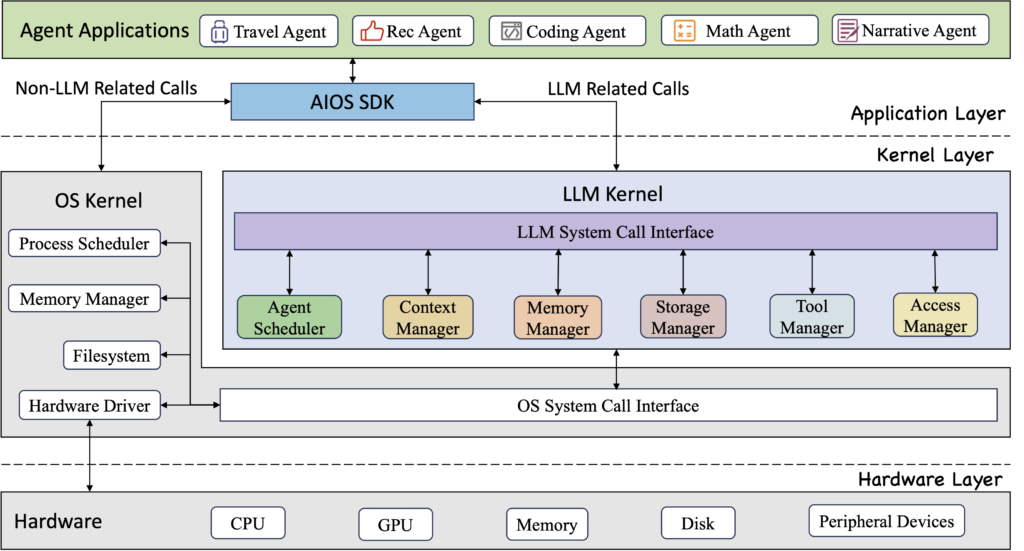
This type of OS was expected for quite some time as Andrew Karpathy mentioned in his “Intro to LLMs“.
Open-source autonomous software engineers 🦾
Have you seen Devin? The world’s first fully autonomous AI software engineer. There are now several open-sourec options available.
- SWE-Agent:
- Description: SWE-agent turns LMs (e.g. GPT-4) into software engineering agents that can fix bugs and issues in real GitHub repositories.
- Repository: https://swe-agent.com/
- OpenDevin:
- Description: OpenDevin replicates Devin—an autonomous AI software engineer capable of executing complex engineering tasks and actively collaborating with users on software projects. It aims to enhance and innovate upon Devin through open-source contributions.
- Key Features: Autonomy, web browsing, code writing, and collaboration.
- Repository: OpenDevin Repository.
- Devika:
- Description: Devika is an advanced AI software engineer that understands high-level human instructions, breaks them down into steps, researches relevant information, and writes code to achieve objectives. It aims to be an open-source alternative to Devin.
- Key Features: Planning, reasoning, web browsing, and code generation.
- Repository: Devika Repository.
- Codel:
- Description: Codel is a fully autonomous AI agent capable of performing complex tasks using the terminal, browser, and editor. It runs in a sandboxed Docker environment, automatically detects steps, and provides seamless web browsing and code writing.
- Key Features: Security, autonomy, browser integration, and code execution.
- Repository: Codel Repository
- AutoCodeRover:
- Description: AutoCodeRover is a fully automated approach for resolving GitHub issues (bug fixing and feature addition) where LLMs are combined with analysis and debugging capabilities to prioritize patch locations ultimately leading to a patch..
- Key Features: Seaches relevant code by context, utilizes test suites.
- Repository: AutoCodeRover Repository
Voicecraft: Zero-Shot Speech Editing and Text-to-Speech 🎙️
VoiceCraft is a cutting-edge token infilling neural codec language model that excels in zero-shot speech editing and text-to-speech (TTS) tasks with in-the-wild data, such as audiobooks, internet videos, and podcasts. It requires only a few seconds of a reference voice to clone or edit an unseen voice, showcasing its efficiency and effectiveness. The repository includes a comprehensive README with instructions for running inference in various ways, including Google Colab, Docker, and local environment setup, as well as links to pre-trained model weights.
AI/Claude researcher: Automated online research 🔍
This project by Matt Shumer is an AI agent that leverages Claude 3 and SERPAPI to conduct extensive research on specified topics. It systematically breaks down the research process into subtopics, creates detailed reports for each, and compiles them into a final comprehensive report. The tool is designed to generate a checklist of subtopics, perform iterative searches and analyses, and incorporate feedback to refine the reports, which are ultimately saved as a text file. It’s an experimental tool meant for informational purposes, and users are encouraged to verify the information with reliable sources.
You can also find the following fork variations for the same project:
- Claude3 AI-Researcher (Google API)
- Low-cost Haiku-Researcher
The results look impressive:

Ragflow: Cutting-edge open-source RAG architecture 🗃️
RAGFlow, hosted on GitHub by InfiniFlow, is a cutting-edge open-source RAG (Retrieval-Augmented Generation) engine that leverages deep document understanding to enhance question-answering systems. It’s designed to streamline the RAG workflow for businesses of any size, integrating Large Language Models (LLMs) to provide accurate, citation-backed answers from a variety of complex data formats. The key features that make RAGFlow an attractive option include its ability to extract knowledge from unstructured data, support for multiple data sources, and a template-based chunking system that reduces hallucinations in answers. With recent updates like local LLM deployment and new layout recognition models, RAGFlow is continually evolving to meet the needs of modern businesses seeking reliable AI-driven insights.
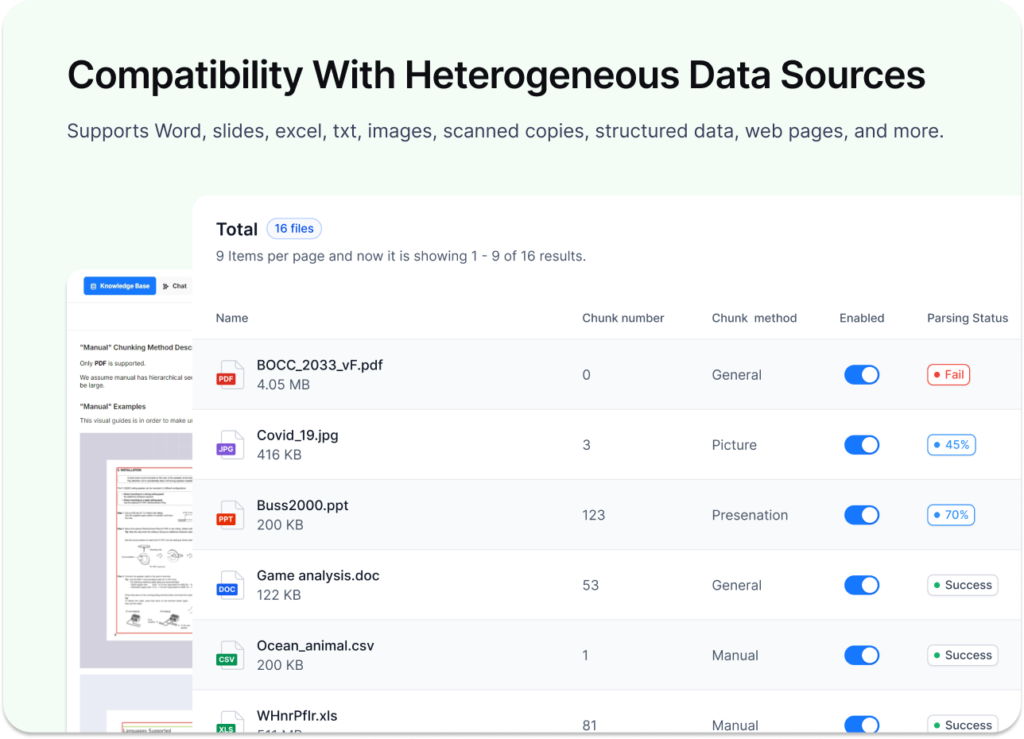
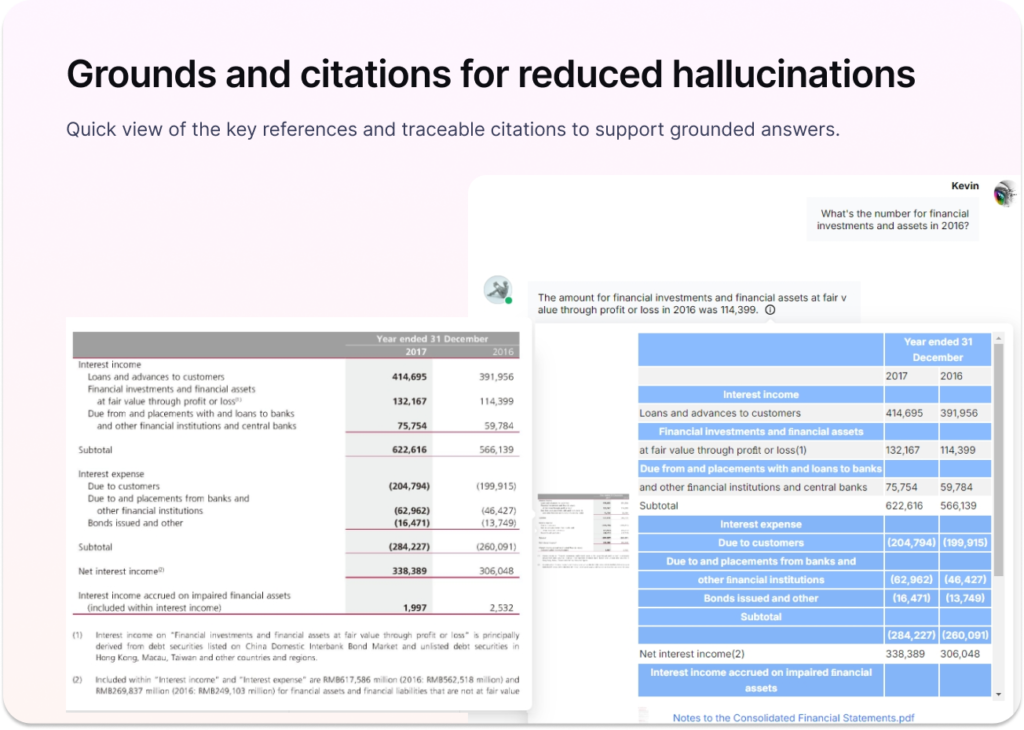
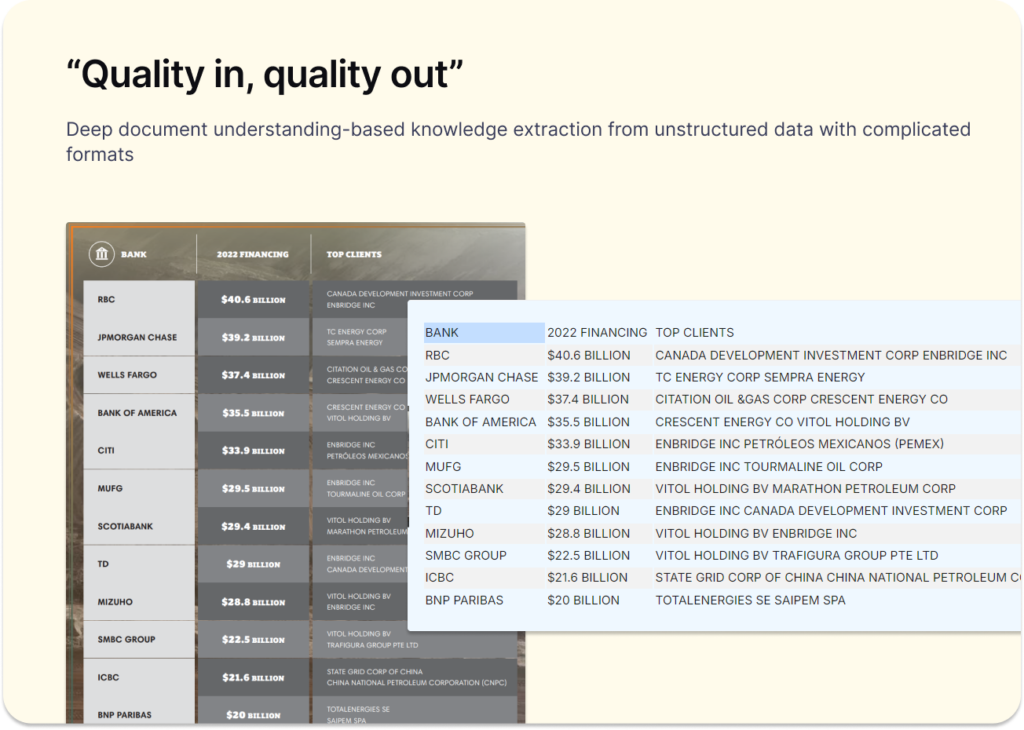
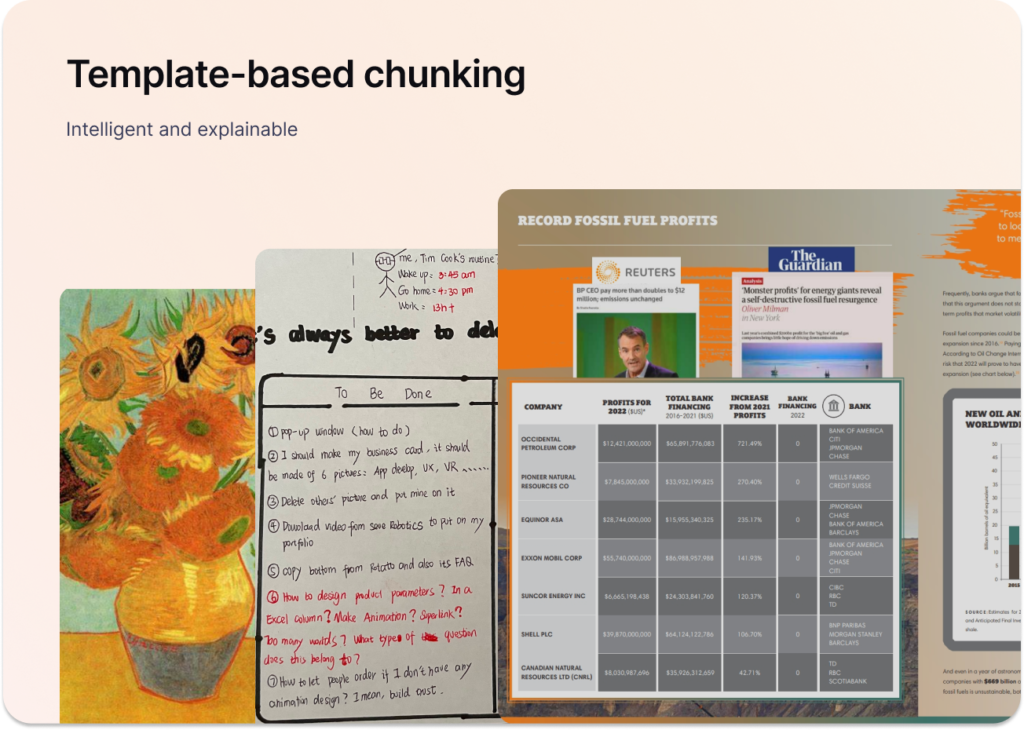
AI-generated text detector 👁️
The GitHub repository “Detect-AI-text-Easily” by Fareed Khan is a cutting-edge tool designed to identify AI-generated text. This application stands out for its user-friendly interface, allowing users to either upload a document or input text directly for analysis. It’s particularly beneficial for those looking to quickly discern between human and AI-written content, ensuring authenticity and originality in written works. You can also find a list of words that you can use to tell if a piece of text was written by AI!
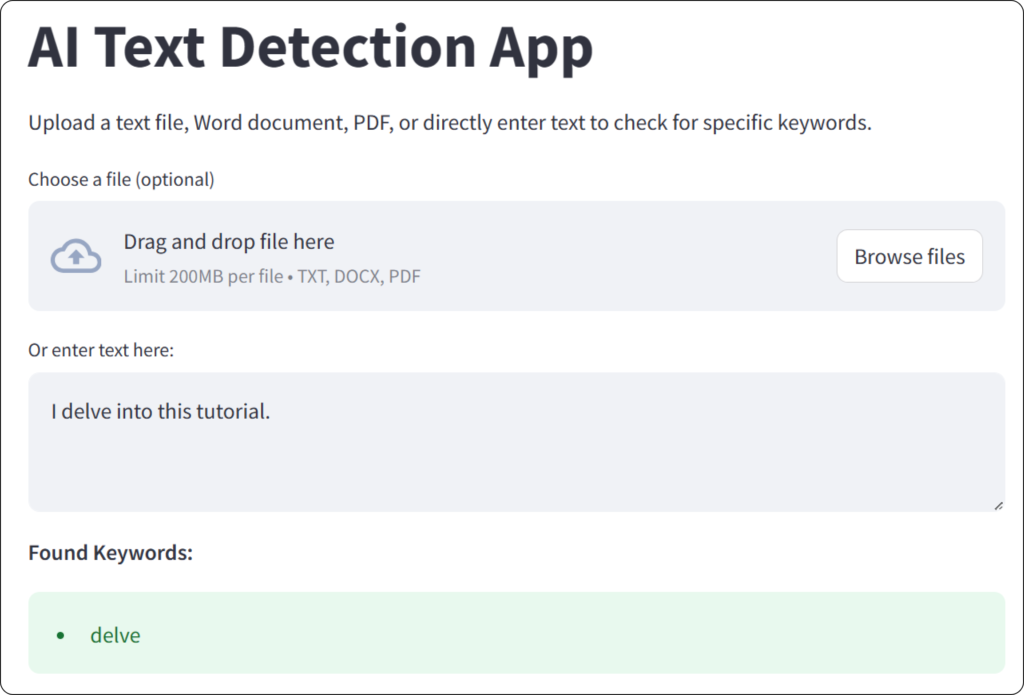
With the rise of AI in content creation, this free tool provides a valuable layer of verification for editors, publishers, and anyone concerned with the integrity of text-based communication.
AutoCrawler: Web crawling agent 🌎
The AutoCrawler is an innovative project that leverages large language models (LLMs) to automate the generation of web crawlers, as detailed in the paper “AutoCrawler: A Progressive Understanding Web Agent for Web Crawler Generation“. This tool is designed to simplify the process of extracting structured data from websites without the need for manual coding. It’s particularly useful for developers and researchers who require large datasets for training machine learning models or for data analysis purposes. The AutoCrawler stands out for its ability to progressively understand and adapt to different web page structures, making it a versatile and powerful tool for anyone looking to harness the power of web data efficiently and effectively.

More updates coming soon
Revisit this article for more updates and let me know in the comments if you think I missed anything interesting.

